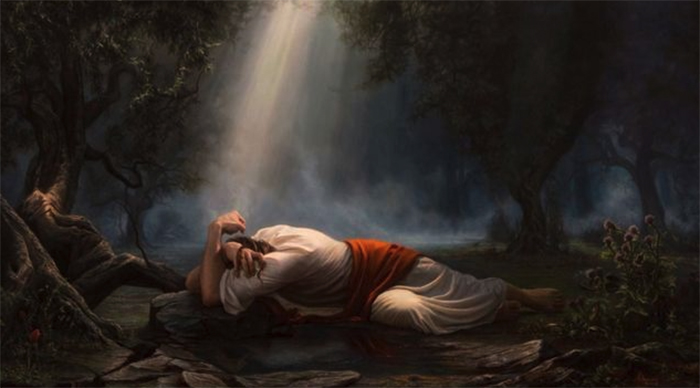
Today’s reflection verse from the Gospel of Matthew speaks to an action Jesus did frequently: withdrawing to be alone. What lesson can we learn from this? How do we handle our darkest, most depressed, most lonely moments? Do we take time in these situations to bring our concerns to God? In our Lord Jesus’ darkest hour, he withdrew to speak to the Father. In this moment, we see Jesus’ humanity breaking through as he begs the Father to allow him to escape what he knows is coming. Fr. Rolheiser writes that Jesus’ prayer in the Garden of Gethsemane can be a model for how to pray when we’re in crisis. Here are seven aspects to consider when taking a crisis to God:
- His prayer arises from his loneliness: In our deepest crises, we are always painfully alone, a stone’s throw away from others. Deep prayer should arise from that place.
- His prayer is one of great familiarity: In our darkest hours, we must be most familiar with God.
- His prayer is one of complete honesty. Prayer is classically defined as “lifting mind and heart to God.” In our darkest hour, we must be totally open to God.
- His prayer is one of utter helplessness: Jesus’ prayer contains the petition that if God is to do this through him, God needs to provide the strength for it.
- His prayer is one of openness, despite personal resistance: Jesus’ prayer opens him to God’s will if that is ultimately being asked of him.
- His prayer is one of repetition: Jesus repeats the prayer several times, each time more earnestly, sweating blood, not just once, but several times over.
- His prayer is one of transformation: Strength can only flow into Jesus after he has, through helplessness, let go of his own strength. Only after the desert has done its work on us are we open to allowing God’s strength to flow into us.
When we pray honestly, whatever our pain, an angel of God will always find us.
